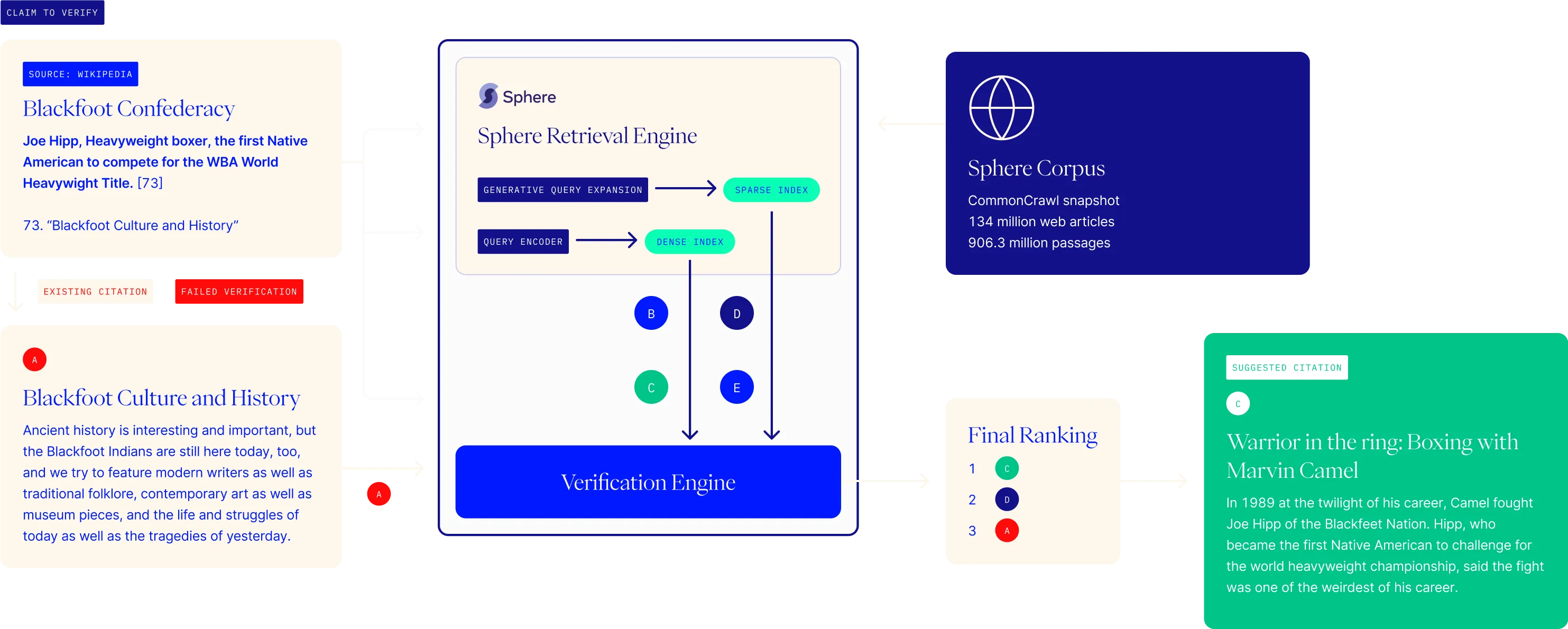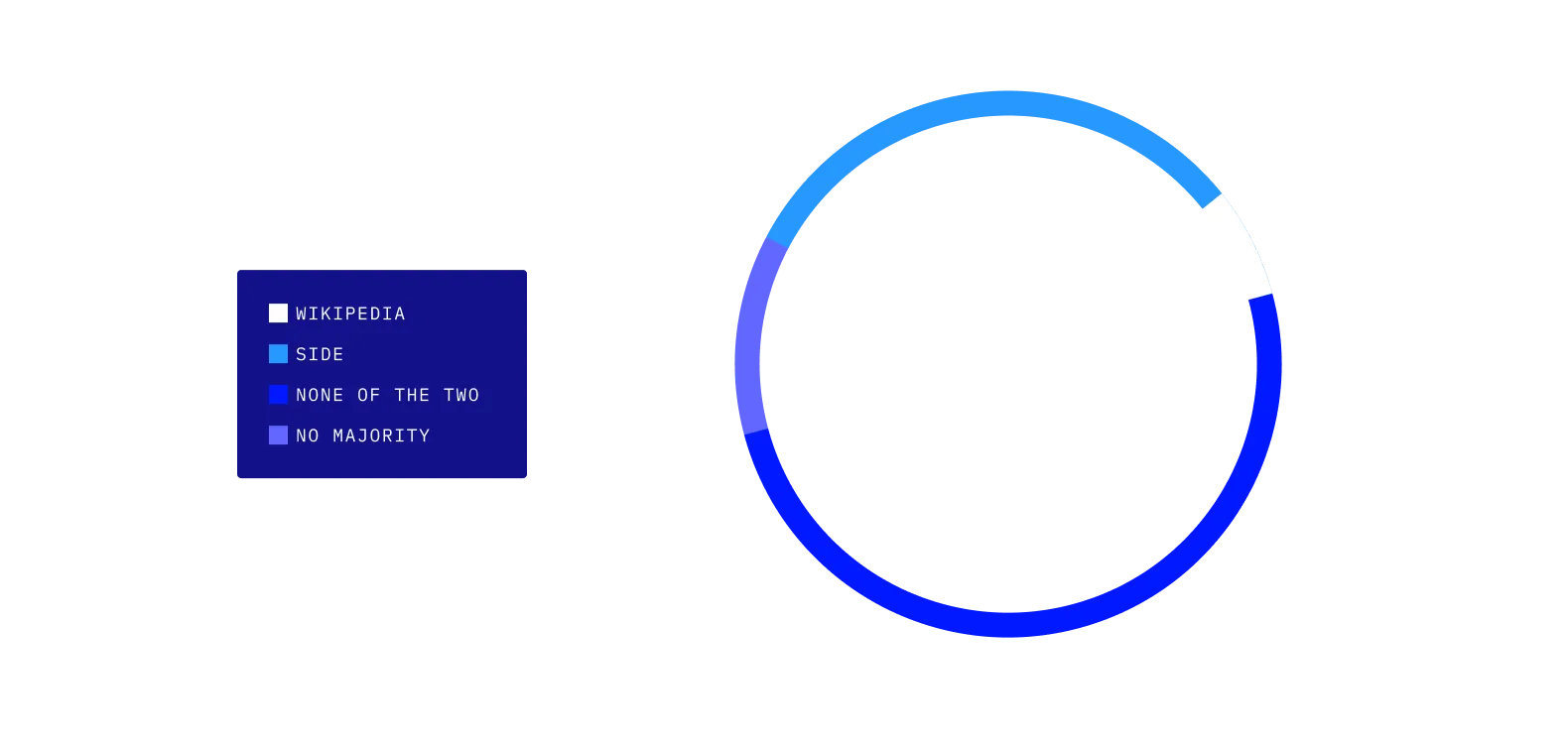Can machines assist humans in verifying world knowledge?
Yet, having access to a vast body of knowledge doesn’t make us omniscient – making sense of that knowledge remains extremely difficult and time consuming. A researcher working on a new hypothesis still needs to read through literature, write notes, mentally connect the dots. A knowledge worker needs years of experience, research and reading to spot a novel correlation. Furthermore, the process is complicated by the fact that different pieces of information can be in conflict with each other and must be understood and traced back to their original sources.
Our recent study published in Nature, “Improving Wikipedia Verifiability with AI”, suggests that building machines to assist humans in navigating, interpreting, and verifying world knowledge is achievable today. Among the authors of the paper is our CTO Fabio Petroni, who conducted much of this work while at Meta AI’s FAIR labs, and founding ML engineer Michele Bevilacqua.
Wikipedia is one of the most used collections of knowledge on the planet, an incredible collective effort to catalog what we know about the world, powered by volunteer and expert editors. A pillar of Wikipedia is verifiability: claims need to be backed by citations, so that “people using the encyclopedia can check that the information comes from a reliable source”. Yet, the task of ensuring verifiability of Wikipedia is titanic. Expert editors currently rely on the work of volunteers (you can help with tools such as citationhunt) that: (1) identify and tag claims likely to fail verification by performing fact and reference checks between the wikipedia claim and the cited source; (2) provide assistance by suggesting replacement for a failed verification citation with a reliable source that corroborates the claim. At the time of writing, over 500,000 statements on Wikipedia are marked as “Citation needed”.
In the paper, we show that a machine can assist editors with both tasks, discovering problematic citations and improving their verifiability. The system we propose, SIDE, leverages a specialized language model to evaluate Wikipedia claim-citation pairs, assigning verifiability scores and identifying potential evidence shortfalls. It is equipped with a retrieval engine able to extract in-context Wikipedia claims and search the web-scale ‘Sphere’ corpus for alternative sources. SIDE flags claims with low verifiability and suggests alternative sources, potentially guiding editors in their content curation process.

Figure 1: The decision flow of SIDE from a claim on Wikipedia to a suggestion for a new citation.
In extensive evaluations, SIDE demonstrated a strong ability to pinpoint claims with failed verifications on Wikipedia. Not only does it identify these discrepancies, but when claims are deemed likely to be unverifiable, the system’s suggested citations were more often preferred by Wikipedia users than the original Wikipedia citations.

Figure 2: Wikipedia users annotations via the SIDE demo.
At Samaya AI, we’re developing advanced machines that redefine how experts manage, interact with, and ultimately craft knowledge. We’re exploring new exciting directions and need the brightest minds to help navigate these uncharted territories. If you’re fueled by curiosity and thrive on challenge, we’re eager for you to join our quest. Reach out and connect with us at [email protected]!
Read the full paper: www.nature.com/articles/s42256-023-00726-1
Get the code: github.com/facebookresearch/side
See the demo: verifier.sideeditor.com